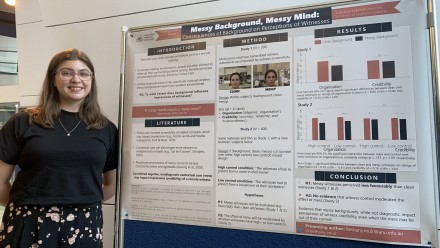Cecil Gibbs Seminar Series: Schools as a Group System
Abstract: Schools are critical institutions for building positive futures but are facing challenges with poorer student mental health, less engagement in learning and increasing anti-social behaviour. An examination of recent school improvement strategies and reforms highlights a preference for individually-oriented solutions (e.g., school counsellors, pastoral care, teacher quality, behaviour reinforcement). There is less of an emphasis on the school as a group and the way a social psychological analysis of behaviour and behaviour change can advance understanding and improvement of educational outcomes (well-being, engagement and achievement, bullying). Over the past 10 years in collaboration with ACT Education, we have been investigating the relationships between positive school climate (‘who we are’ and ‘what we do’) and school identification and key outcomes including in the context of a sector wide positive behavioural support program. It is timely to take stock of this research and highlight new insights and implications as well as considering future directions for group-based research and practice in schools (e.g., Groups4Thriving).
Biographical details: Professor Kate Reynolds has for over two decades investigated the implications of people’s self-definition as group members (in terms of their social identity as “we” and “us”) for attitudes, well-being and behaviour. Her published work is at the forefront of developments in understanding how the transformation of social identity (and ingroup norms) and connecting with “new” meaningful “others” (ingroup members) is related to social and behaviour change. These ideas have been examined over the last 10 years through collaborations with ACT Education focusing on school climate, school (social) identity and school outcomes (e.g., well-being, engagement and achievement, bullying). Most recently, in her role as Director of the ANU Social Cohesion Grand Challenge (2019-2022) there is a focus on national and community (group) cohesion, its benefits and challenges and how it can be strengthened.
Kate has received research funding from the Australian Research Council (Discovery & Linkage) and Federal and State Governments and her research has appeared in leading scientific journals and volumes. She has extensive leadership experience serving on several committees including for government (Behavioural Economics Team Australia, PM&C), NGOs, (Scanlon Foundation Research Institute, John XXIII College), professional societies and editorial boards and at ANU (Human Ethics, Research, Equity & Diversity, ANU Academic Board, ANU Council).











